
Home » Hamro Palo’s COVID-19 Response
COVID-19, the disease caused by coronavirus, has created a global health crisis and put humanity at risk. In Nepal, the first case of COVID-19 was found on 23 January when a Nepali student returned from Wuhan and tested positive. However, the cases started rising only when the local transmission was confirmed in May.
The pandemic caught up late in Nepal but now, over 17 thousand Nepalese are infected with the virus. The state declared nationwide lockdown since 24 March and four months down the line, the lockdown has not ended but has loosened for offices to run.
We at Hamro Palo worked from home online after a while of the nationwide lockdown and starting July, we worked from the office following odd and even-numbered traffic rules for the private vehicles. We have not ceased working and adapted to digital media for our work since the pandemic has amplified our need in society.
Apart from creating a global health crisis, the pandemic has put vulnerable groups like adolescent girls and women at risk, spiking the number of Gender-Based Violence (GBV) creating a Shadow Pandemic. According to the monthly update of WOREC in June, 624 women and girls from 55 districts experienced different types of violence, out of which, 61% had experienced domestic violence.
“We are scared because of the coronavirus. The women who face violence have to go through the trauma of not only the virus but their safety as well. We are also afraid it might even happen to us,” says 17-years old Sangita Joyti , our Girls Advisory Board member from Sindhupalchok.
Since we have adopted the online platform as our new normal, we have reached out to our Girls Advisory Board members to understand the impact of Covid-19 in their daily life. It is their leadership and support we require the most in this time of crisis to assess the needs of adolescent girls in their community. Since our GAB members represent the local communities we worked in, they are our key voices. Apart from GAB, we have also been reaching out to our local contacts and exploring ways we can reach out to the communities in need.
Our contacts informed us about the need for basic supplies for vulnerable communities in the area we worked in.
“Since we visit each house of the community, we know the situation of the people, and therefore, we spoke about their problems to provide relief materials,” says Uma Biswokarma, Female Community Health Volunteer (FCHV) of Panchkhal Municipality.
Sani Danuwar, another FCHV from the same municipality confirms the problem and informs us about the rising prices in the essentials causing difficulty to families with low income.
Among them, families having a pregnant woman and new mothers are suffering the most. According to a news report by The Kathmandu Post, there has been a 200 percent increase in maternal mortality since the lockdown began, taking the lives of 24 women in the first two months of lockdown while last year, a total of 80 women died due to birth complications in the whole year.
Therefore, on 8 and 10 July, we visited the Panchkhal Municipality in Kavre district and Chautara Sangachowkgadi Municipality in Sindhupalchowk district, the areas we work in, to distribute basic supplies to pregnant women, new mothers, and marginalized families.
The FCHVs of Panchkhal municipality were very helpful in supporting us to distribute essentials to the marginalized people in their community. With their support, we will soon be starting a 15-day Sneha program in that municipality to girls out of school (12-19 years) and pregnant girls and new mothers until the age of 24 in August following the COVID-19 guidelines developed by our team and reducing the number of participants. We are also exploring changes in Her Turn and His Chance program to reach adolescents and not cease our empowerment programs.
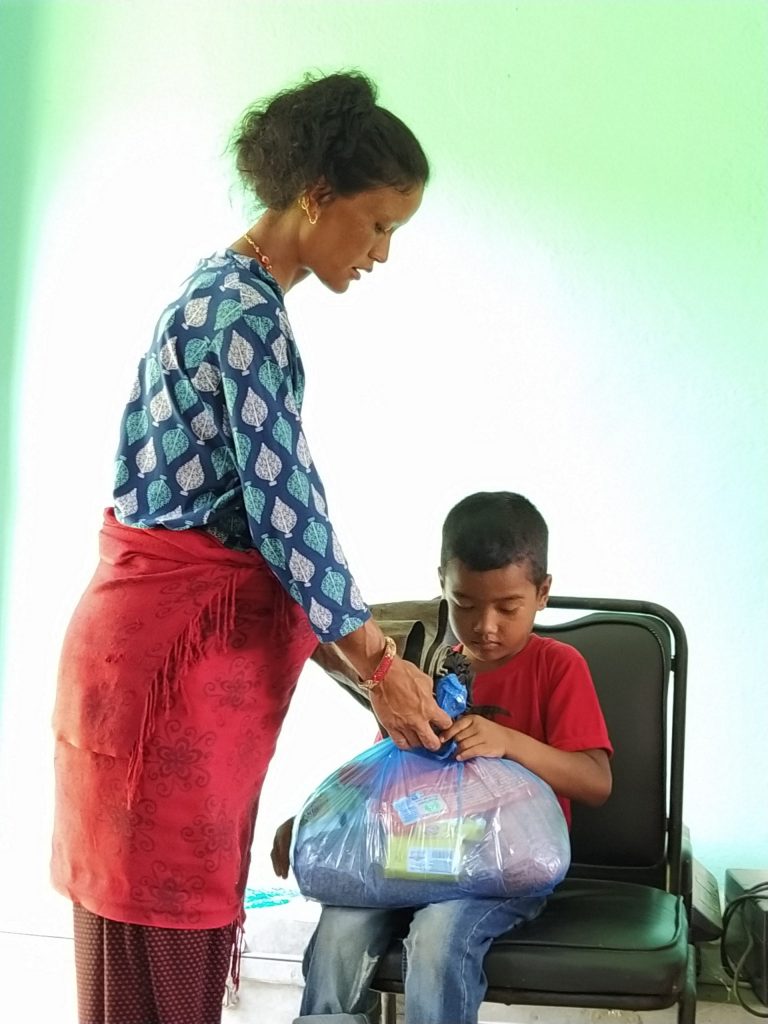
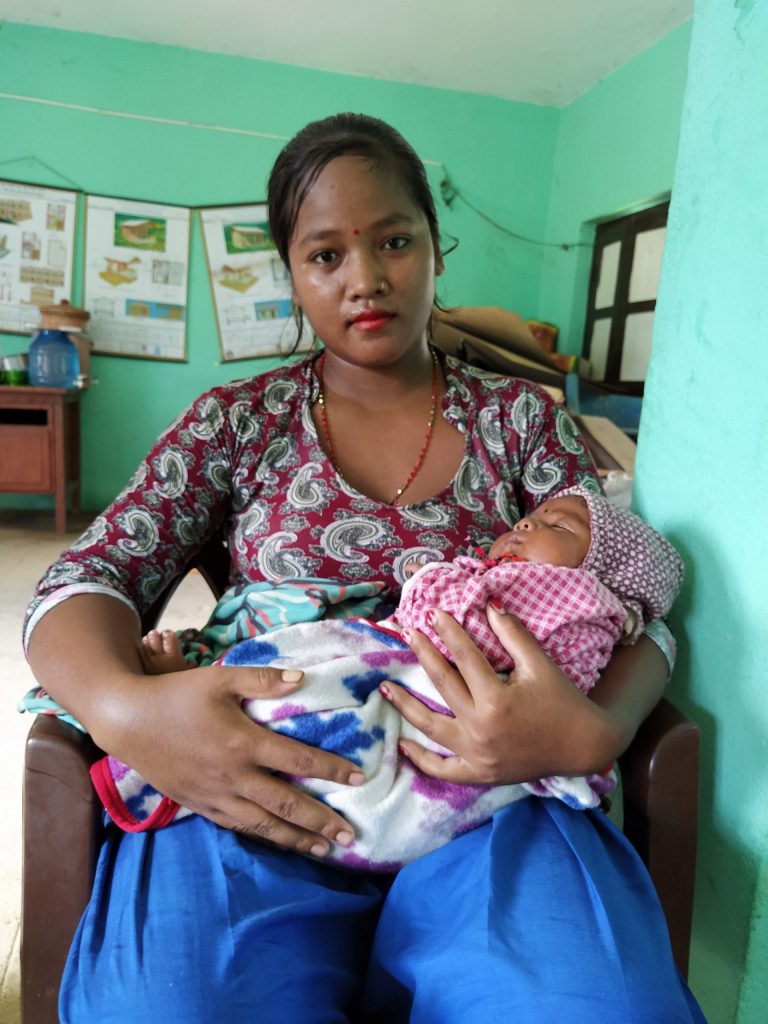
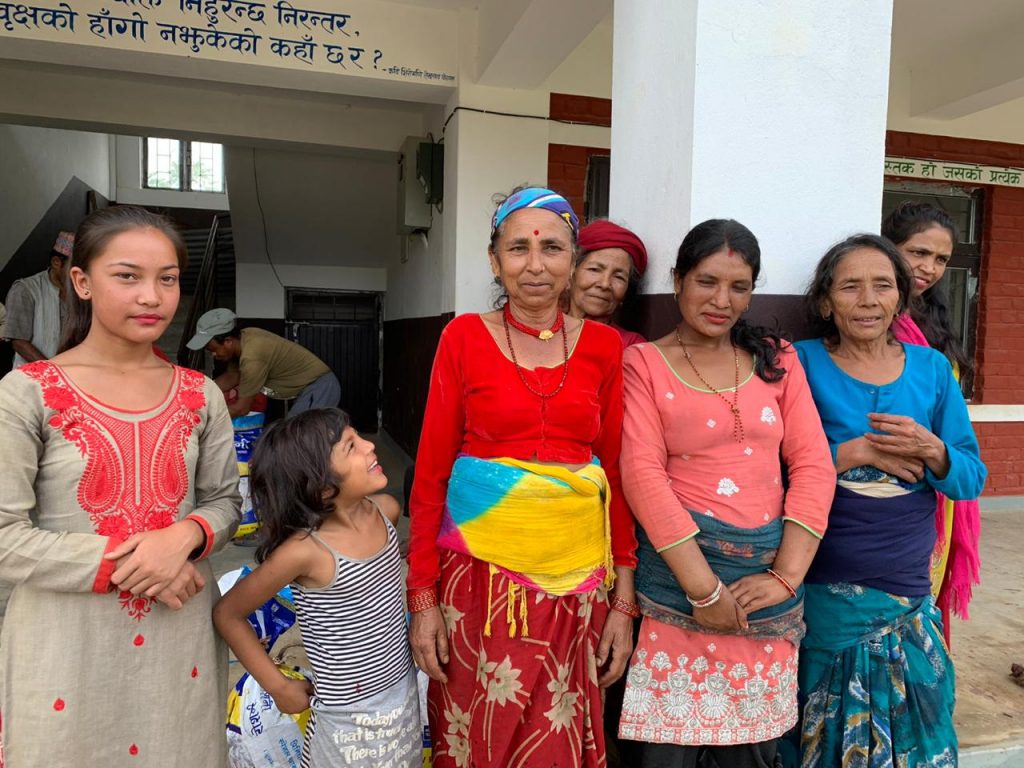
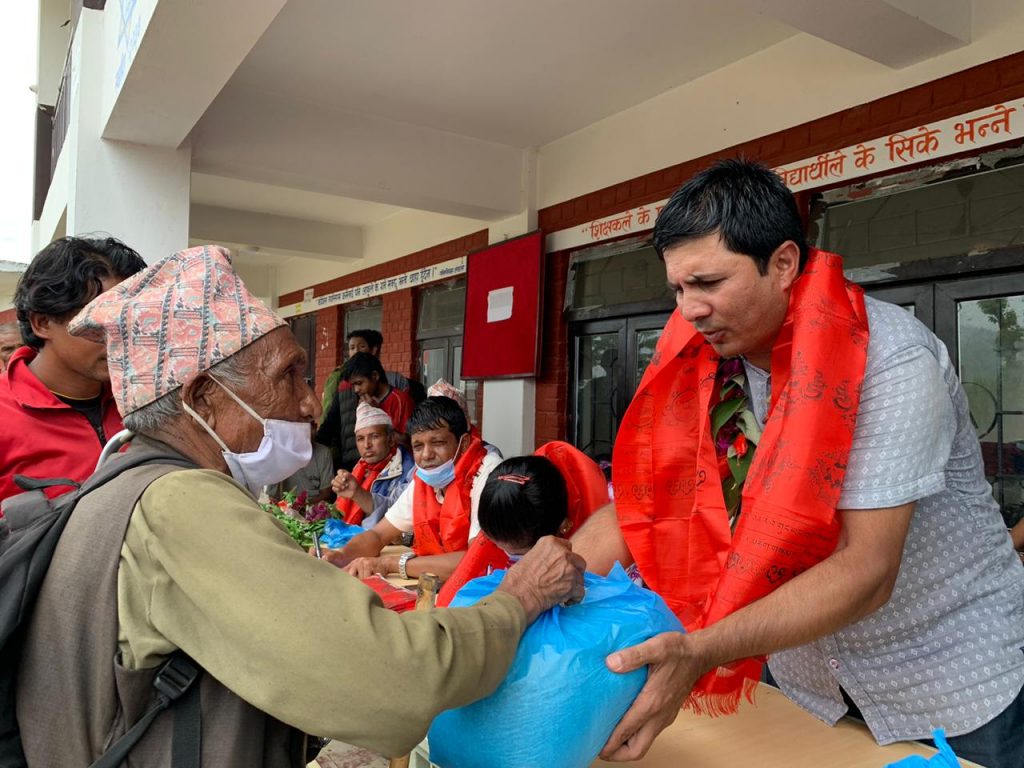
Since we realized the importance of online platforms during the pandemic, we have initiated a Digital Advocacy Fellowship for women below 35 years to advocate on young women and adolescent girls’ issues online. However, executing this work requires us to work full time from the office. Therefore, we have established COVID-19 guidelines for our team to follow in the workplace and be safe.
“We are learning how this pandemic is affecting rural communities, especially women and girls who bear the brunt of the crisis far more severely. This pandemic has exposed the deep flaws in our society on issues like access to health facilities, education system, livelihood, gender, and digital access,” says Anita Thapa, Executive Director of Hamro Palo.
She further explains that since most of our work is focused in school, we have shelved our school-based program. She adds, “In the coming months, we will be directly supporting new mothers and expectants through our COVID-19 response project”.
In this pandemic, we are revising entire project activities considering health and safety and making it accessible to women and girls and we plan to do so in the future considering the situation.
Check out this video with adolescent girls in Nepal telling us how they are coping with this pandemic and what they think about their future.
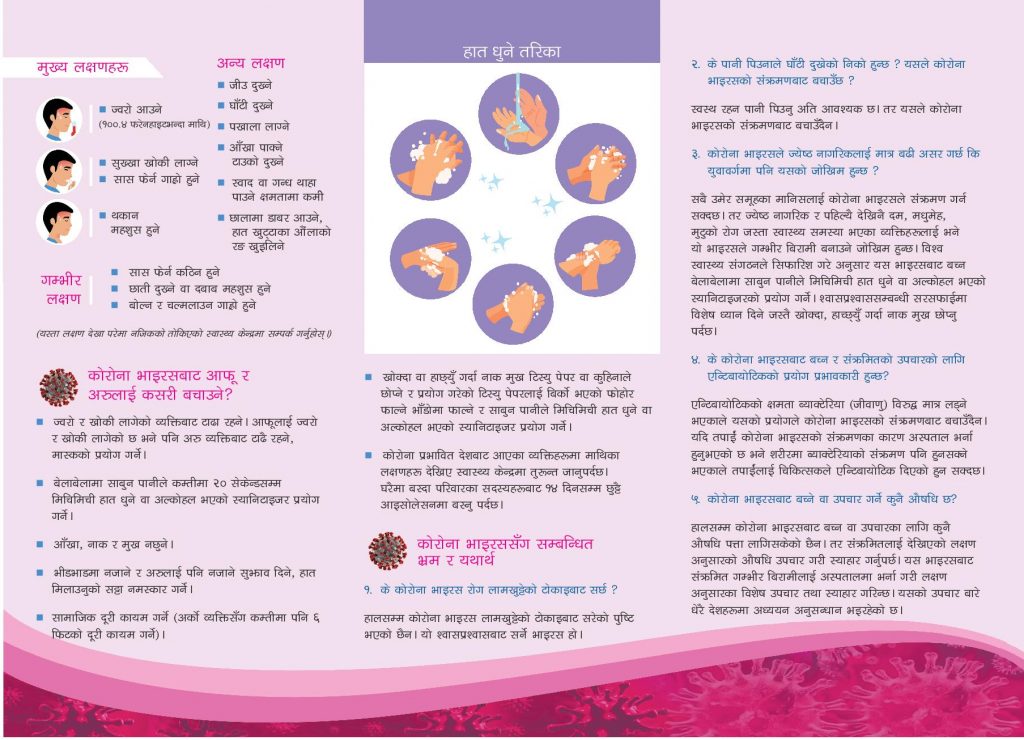
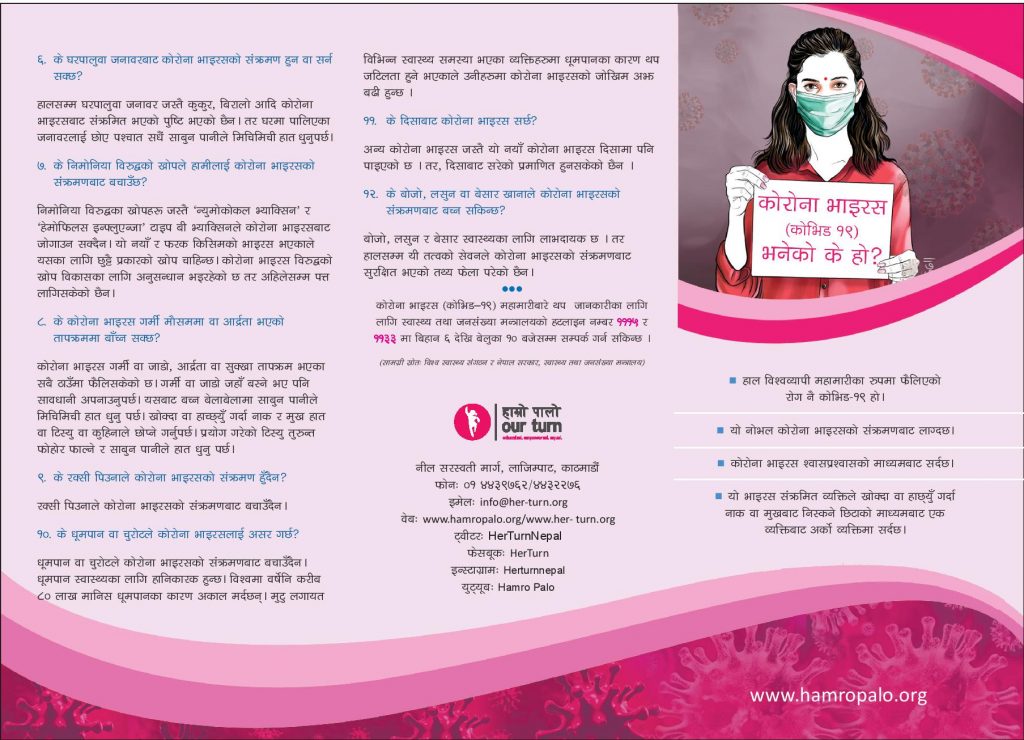
@2026. All Rights Reserved by Hamro Palo.